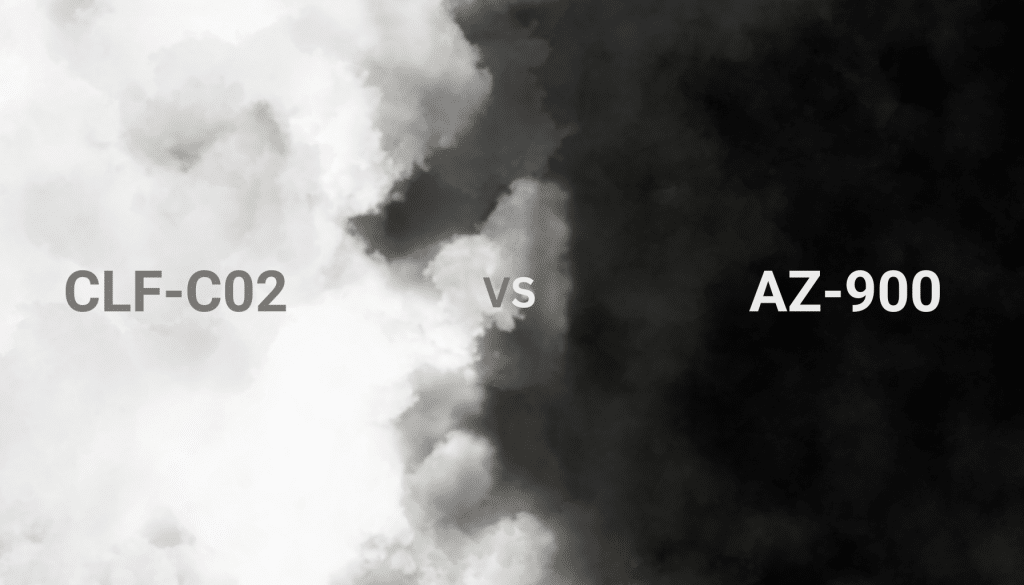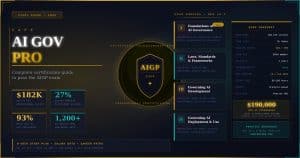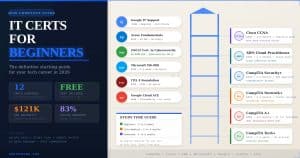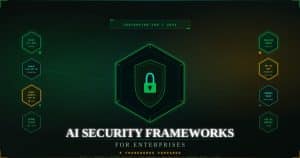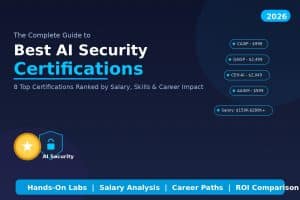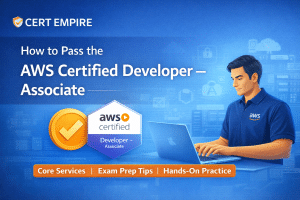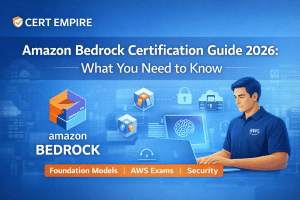Cloud computing skills are in high demand, and earning a certification can be a great way to get started. But with so many options available, choosing the right one can feel overwhelming. CLF-C02 (AWS Certified Cloud Practitioner) and AZ-900 (Microsoft Azure Fundamentals) are two of the most popular beginner-level cloud certifications. They help you build foundational knowledge, but they focus on different platforms, AWS and Azure, each with its own advantages in the job market.
If you’re wondering which the certification exam is easier, which one offers better career prospects, or whether you should take both, you’re in the right place. This guide will walk you through everything you need to know, including exam details, difficulty levels, salary expectations, and real-world benefits.
| Feature | AZ-900 | CLF-C02 |
| Cloud Provider | Microsoft Azure | Amazon Web Services (AWS) |
| Target Audience | Business professionals, beginners, IT newcomers | Beginners, aspiring AWS professionals |
| Exam Focus | Cloud concepts, Azure services, security, pricing, governance | AWS services, security, cloud economics, pricing models |
| Exam Difficulty | Easier, more conceptual | Slightly deeper, requires some tech understanding |
| Best For | People new to cloud, IT professionals wanting Azure exposure | Beginners who want AWS knowledge or plan to take advanced AWS certs |
| Number of Questions | 40-60 | 65 |
| Exam Duration | 45-60 minutes | 90 minutes |
| Exam Format | Multiple-choice, drag-and-drop | Multiple-choice, multiple-answer |
| Passing Score | 700/1000 | Variable (scaled scoring) |
| Certification Validity | Lifetime (subject to changes) | 3 years |
| Cost | $99 USD | $100 USD |
| Prerequisites | None | None |
| Recommended Experience | Basic cloud knowledge, no prior technical experience required | Basic understanding of AWS services and cloud concepts |
| Preparation Resources | Microsoft Learn, official AZ-900 study guide, practice tests | AWS Training, AWS whitepapers, practice tests |
Getting to Know AWS Certified Cloud Practitioner (CLF-C02)
What Is CLF-C02 All About?
The AWS Certified Cloud Practitioner (CLF-C02) is where most people start when getting into cloud computing, especially if they are looking at Amazon Web Services (AWS). If you want a step-by-step guide on exam topics, difficulty, and study tips, check out our CLF-C02 certification guide. It’s an entry-level certification that lays the groundwork, covering the basics of cloud services, AWS pricing, architecture, security, and deployment models.
CLF-C02 does not dive deep into coding or complex architectures like the more technical associate or professional-level AWS certifications. It is designed for beginners, IT newcomers, and even non-technical professionals who need a broad understanding of AWS. Those in sales, marketing, finance, or project management who work with AWS-related projects can benefit from learning cloud fundamentals without becoming an engineer.
AWS updated this exam from CLF-C01 to CLF-C02, making minor adjustments to keep up with the latest cloud computing trends. The core knowledge areas remain the same, covering AWS fundamentals, billing models, cloud security, and compliance, but with slight refinements to reflect current industry practices.
Who Should Go for CLF-C02?
This certification is ideal for people who:
- Have little or no cloud experience and want to start with AWS
- Work in non-technical roles but need to understand AWS services
- Are in IT support, system administration, or networking and need AWS knowledge
- Plan to take higher AWS certifications later but need a solid foundation first
It is also useful for students, freelancers, and entrepreneurs who want to familiarize themselves with AWS without delving into technical complexities. For developers or solutions architects, skipping this certification and going directly to an associate-level AWS certification might make sense.
What Does the CLF-C02 Exam Cover?
The exam is structured around four main areas:
- Cloud Concepts (24%) – Covers why businesses move to the cloud, benefits like scalability, elasticity, high availability, and different deployment models (Public, Private, Hybrid).
- Security & Compliance (30%): This course focuses on AWS security concepts, Identity and Access Management (IAM), encryption, DDoS protection, and compliance frameworks such as GDPR, HIPAA, and ISO 27001.
- Technology (34%) – Covers AWS global infrastructure, key services like EC2, S3, RDS, Lambda, networking basics, load balancing, and cloud migration strategies.
- Billing & Pricing (12%) – Explains AWS cost models, free-tier limits, pricing calculators, and support plans.
The focus is on understanding rather than deep technical configuration. While hands-on experience is not required, having some familiarity with the AWS Management Console can be helpful.
Most beginners take 2–4 weeks to prepare. For smarter preparation, follow these CLF-C02 Exam Study Tips and Strategies to boost your chances of passing on the first attempt.
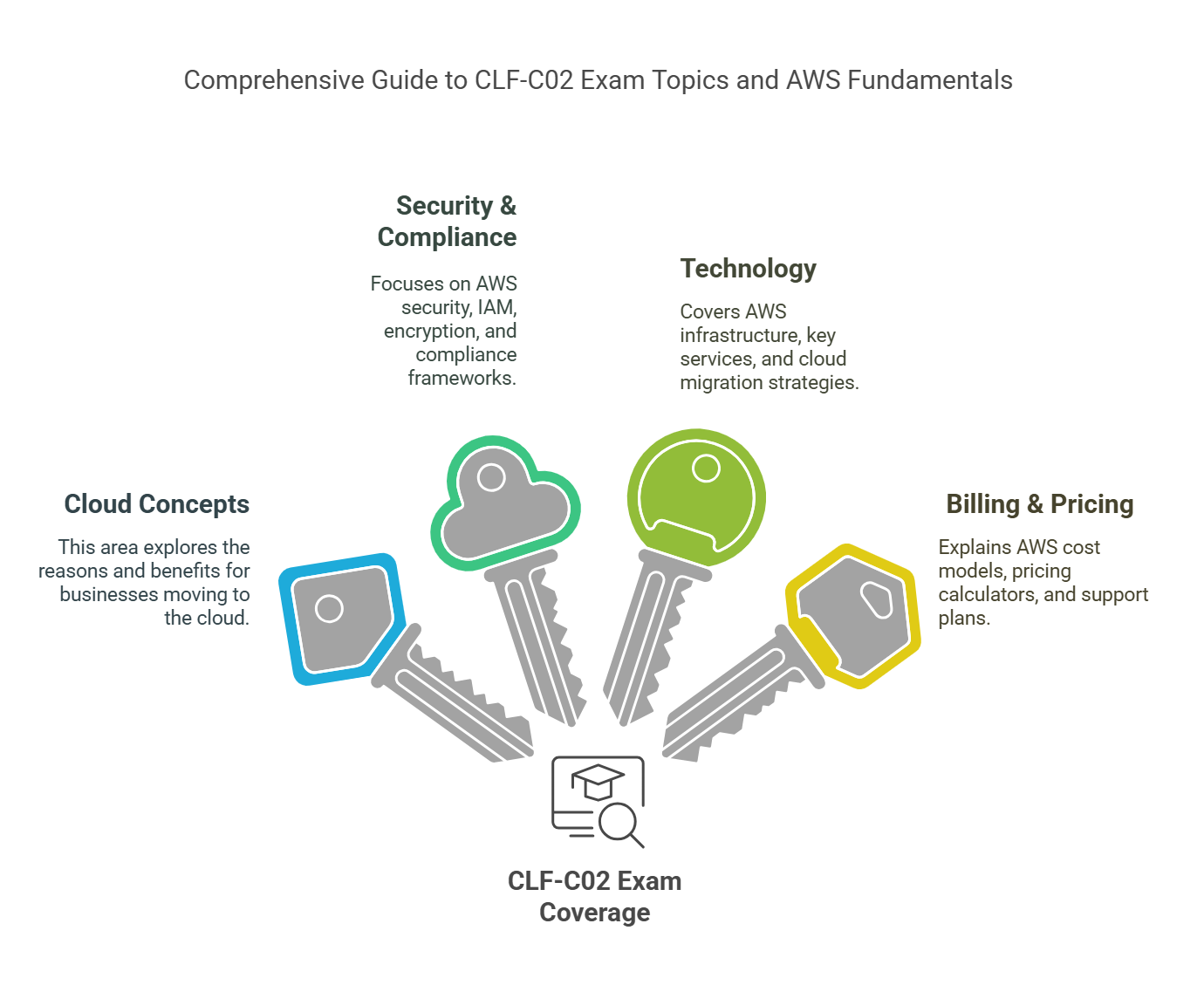
Exam Details: What to Expect from CLF-C02
- Exam Format: 65 multiple-choice and multiple-response questions
- Time Limit: 90 minutes
- Passing Score: Around 700 out of 1000 (AWS does not disclose exact grading)
- Cost: 100 USD (discount available if using a voucher from another AWS certification)
- Retake Policy: A 14-day waiting period is required before retaking the exam if unsuccessful
- Validity: 3 years, after which recertification is required
The exam is available in multiple languages and can be taken online with remote proctoring or at a test center. Unlike higher-level AWS exams, there are no hands-on labs; this is purely a theory-based exam. If you want to practice real exam-style questions, check out CLF-C02 exam dumps from Cert Empire to boost your confidence before the test.
How CLF-C02 Helps in Career Growth
This certification is useful for those looking to gain an entry point into the cloud computing market, but it should be seen as a starting point rather than a credential that guarantees a high-paying job.
- Enhances your resume – AWS is the most widely used cloud platform, and having this certification demonstrates an understanding of its fundamentals.
- Opens doors to cloud-related career paths – It serves as a foundation for more advanced AWS certifications like Solutions Architect, Developer, SysOps, and Security.
- Improves salary potential – While this certification alone is not enough to secure a high salary, it can give an edge in entry-level IT, support, pre-sales, project management, and business analyst roles.
- Supports career transitions – Those moving from non-technical backgrounds to cloud computing can use CLF-C02 as a stepping stone toward more specialized AWS roles.
For a full breakdown of earning potential, check out our guide on Jobs and Salary for CLF-C02 Professionals.
Job Roles That Value AWS Cloud Practitioner (CLF-C02)
This certification is not meant for highly technical roles such as cloud engineering or DevOps. Instead, it is more useful for:
- Cloud sales and pre-sales engineers who need to explain AWS services to clients
- IT project managers working on AWS-based projects
- Marketing and business analysts who need to understand AWS products and pricing
- Technical support staff in entry-level IT roles dealing with AWS infrastructure
- System administrators and IT generalists looking to gain AWS knowledge
For those aiming to become cloud engineers or architects, CLF-C02 alone will not be enough. It is best paired with associate, and professional-level AWS certifications to build more technical expertise.
How CLF-C02 Fits into AWS Certification Pathways
AWS certifications are structured as a progression, with CLF-C02 serving as the foundation. The certification path typically looks like this:
- AWS Cloud Practitioner (CLF-C02) – Provides a broad understanding of AWS fundamentals.
- Associate-Level AWS Certifications (Solutions Architect, Developer, SysOps) – Introduces hands-on technical skills.
- Professional-Level AWS Certifications (Solutions Architect Pro, DevOps Pro) – Covers advanced AWS architecture and operations.
- Specialty Certifications (Security, Networking, Machine Learning, Data Analytics) – Focuses on specific areas of expertise.
For those planning a long-term career in cloud computing, CLF-C02 is just the first step. The next logical move for most candidates is to pursue the AWS Solutions Architect Associate (SAA-C03) certification.
Understanding Microsoft Azure Fundamentals (AZ-900)
What Is AZ-900 and Who Is It For?
Microsoft Azure Fundamentals (AZ-900) is an entry-level certification designed to introduce candidates to the basics of Microsoft’s cloud platform, Azure. It is intended for individuals looking to understand cloud concepts, core Azure services, security, pricing, and compliance. Unlike more advanced Azure certifications that focus on deep technical implementation, AZ-900 is meant to provide a high-level overview, making it a good fit for both technical and non-technical professionals.
This certification is ideal for those who:
- Have little to no cloud experience and want to build foundational knowledge of Azure.
- Work in IT but have not yet explored cloud computing.
- Are in business roles like sales, finance, or project management and need to understand Azure services to make decisions.
- Plan to pursue higher Azure certifications such as Azure Administrator Associate or Azure Solutions Architect.
Since Microsoft Azure is a major competitor to AWS, many professionals working with Microsoft environments choose AZ-900 as their starting point. It’s useful for anyone in organizations that rely on Windows Server, Active Directory, Office 365, or Microsoft enterprise solutions.
To dive deeper into exam objectives, preparation methods, and career benefits, check out our detailed AZ-900 certification guide.
Key Topics Covered in AZ-900
AZ-900 focuses on fundamental cloud concepts and how they apply specifically to Microsoft Azure. The exam content is divided into key sections:
- Google Cloud Concepts (25-30%) – Covers cloud computing basics, benefits, service types (IaaS, PaaS, SaaS), and shared responsibility models.
- Azure Services (35-40%) – Introduces core Azure products such as virtual machines (VMs), storage accounts, networking, and databases.
- Security, Compliance, and Identity (10-15%) – Explains Azure security tools, access management, compliance standards, and identity protection.
- Azure Pricing and Support (20-25%) – Covers Azure cost management, pricing models, Service Level Agreements (SLAs), and Azure support plans.
The focus is on concepts rather than technical configurations, making it accessible to those without hands-on cloud experience.
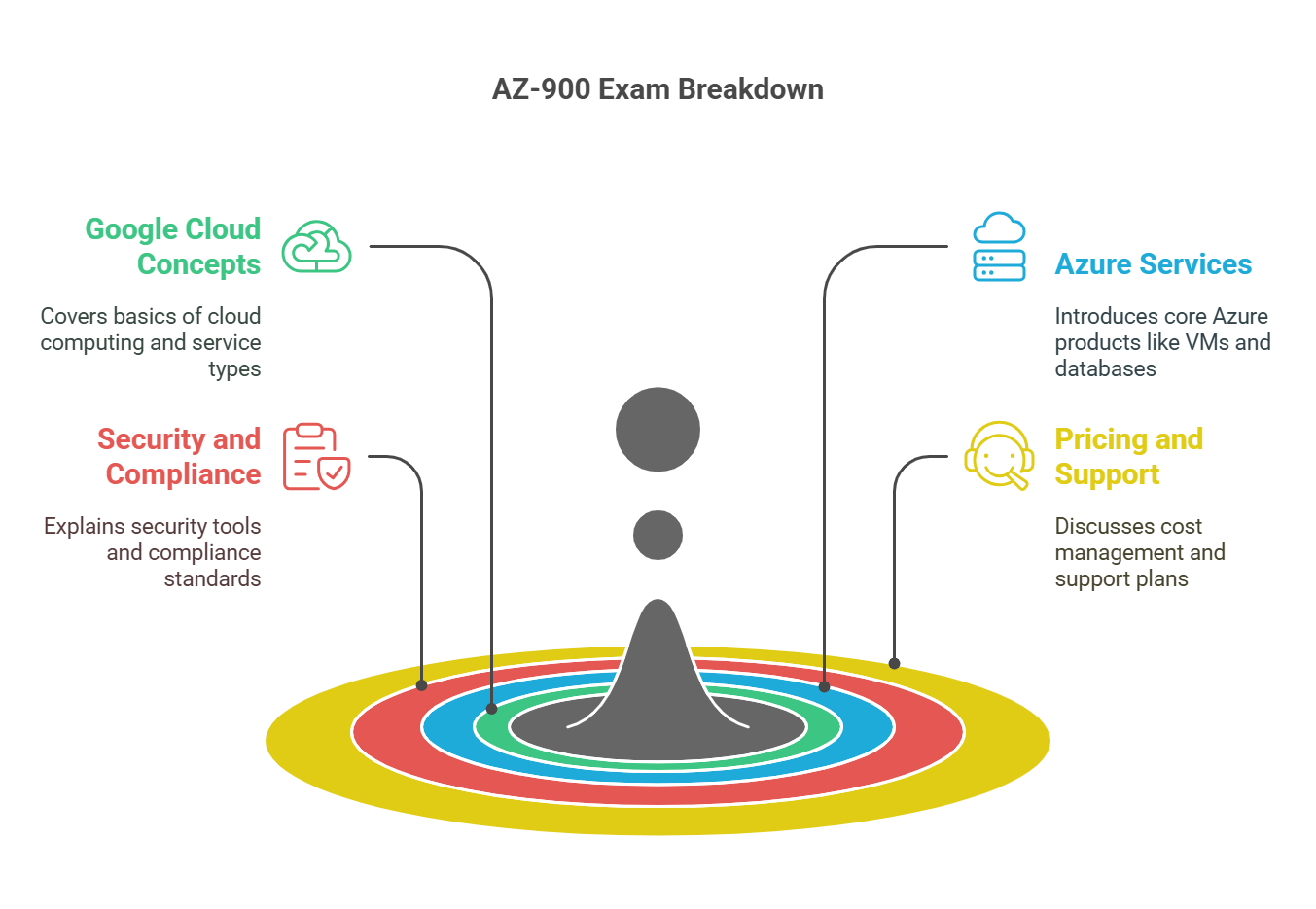
Exam Breakdown: AZ-900 Format and Difficulty Level
- Exam Format: Multiple-choice and multiple-response questions
- Number of Questions: 40-60 questions
- Time Limit: 60 minutes
- Passing Score: 700 out of 1000
- Cost: $99 USD
- Retake Policy: A 24-hour waiting period after the first failure, with increasing wait times for additional attempts
- Validity: Does not expire
Compared to other Microsoft certifications, AZ-900 is considered one of the easiest. To boost your chances of passing, try AZ-900 exam dumps from Cert Empire for real-world practice questions and scenarios. It does not require coding knowledge or deep technical skills, making it a great choice for beginners.
What Kind of Questions Appear in the Exam?
The questions are mostly multiple-choice, drag-and-drop, and case studies. Expect scenario-based questions that test how well you understand Azure services and pricing rather than how to configure them. Some questions may ask you to match Azure services to their use cases or identify the right cloud model for a specific business requirement.
Since Microsoft frequently updates Azure services, the exam questions may evolve over time. It is recommended that you stay up to date with Azure documentation and take practice tests.
For deeper insights into global demand and pay scales, explore our guide on Job Roles and Salary Trends for AZ-900 Professionals.
CLF-C02 vs AZ-900: Which One Should You Choose?
Picking between CLF-C02 (AWS Certified Cloud Practitioner) and AZ-900 (Microsoft Certified Azure Fundamentals) depends on a few factors, career goals, industry trends, and how deep you want to go into cloud computing. Both certs serve as entry points into cloud platforms but focus on different ecosystems.
If your work involves Microsoft tools, Windows Server, or Office 365, AZ-900 makes more sense. If you’re dealing with AWS-based services, DevOps, or cloud infrastructure, CLF-C02 is the better pick. But what if you’re just starting out and don’t know which way to go? Let’s break it down.
For practical preparation advice and proven methods to improve your pass rate, explore our AZ-900 exam tips and strategies.
AWS or Azure: Which Cloud Platform Has More Opportunities?
AWS and Microsoft Azure dominate the cloud market, but their reach and use cases vary.
- AWS leads globally – Amazon Web Services (AWS Cloud Services) holds the largest market share, especially in North America and Europe. Many startups, tech firms, and global enterprises prefer an AWS Certified developer for its flexibility, broad service range, and developer-friendly ecosystem.
- Azure dominates the enterprise sector – Microsoft Azure is the go-to for corporate IT, government agencies, and businesses that already use Microsoft products. It integrates well with Windows, Active Directory, and Microsoft 365, making it a strong choice for companies with existing Microsoft infrastructure.
Which One Is Harder to Pass?
Both exams are designed for beginners, so neither is extremely difficult, but there are some key differences.
- CLF-C02 focuses on AWS concepts, pricing, security, and architecture. The questions are mostly conceptual and require an understanding of how AWS services work rather than hands-on technical knowledge.
- AZ-900 has a similar structure but introduces more Azure-specific services and real-world scenarios related to Microsoft’s cloud ecosystem.
Which Certification Pays Better?
Since both CLF-C02 and AZ-900 are foundational certs, they don’t directly lead to high-paying roles. However, they can help boost entry-level salaries or make transitioning to cloud-based roles easier.
AZ-900 vs CLF-C02 Salary Comparison Across Different Regions
Salaries depend on location, job role, and experience. These certifications alone won’t make a big difference in earnings, but they add value when combined with cloud-related experience.
- United States: $60,000 – $90,000 per year for AWS or Azure-related entry-level roles
- United Kingdom: £35,000 – £55,000 per year
- India: ₹4 LPA – ₹10 LPA
- Australia: AUD 70,000 – 100,000 per year
For a closer look at how this certification impacts careers worldwide, review our guide on job roles and salary trends for AZ-900.
Which One Is More Recognized by Recruiters?
AWS certifications tend to be more widely recognized across industries, mainly because AWS has the largest cloud market share. That said, AZ-900 is highly valued in Microsoft-driven organizations, especially in enterprise IT and government sectors.
Do Employers Value One More Than the Other?
It depends on the employer. If a company uses AWS, they’ll value CLF-C02 more. If they’re running Azure-based systems, they’ll prioritize AZ-900. Since many businesses operate in multi-cloud environments, having either certification is an advantage.
Should You Take Both Certifications?
While it’s not necessary to take both, it can be beneficial if you’re planning a long-term career in cloud computing.
Does Having Both Add Extra Value to Your Resume?
If you work in multi-cloud environments or plan to switch between AWS and Azure roles, having both certifications can give you an edge. However, most professionals start with one platform and specialize before branching out.
When Should You Specialize in AWS or Azure?
- Choose AWS if you want to work with startups, cloud-native applications, or global enterprises.
- Choose Azure Exams if you’re in a Microsoft-driven corporate environment or dealing with enterprise IT, security, or government projects.
- If you’re in IT support, system administration, or networking, Azure might align better since many enterprise IT teams rely on Microsoft tools.
Which Certification Helps More with Career Switching?
For those moving from non-technical roles (marketing, finance, project management) into cloud computing services, AZ-900 is often the better choice since many businesses use Microsoft services.
For those transitioning from on-prem IT roles (networking, security, system administration) to cloud-based roles, CLF-C02 might be a better fit, as AWS is commonly used for cloud migrations.
Final Thoughts
If you’re new to cloud computing and don’t have a clear preference, CLF-C02 is the safer bet because AWS skills are more universally recognized. If your work revolves around Microsoft products, enterprise IT, or security compliance, AZ-900 might be the better fit.
For those planning a career in cloud architecture, DevOps, or cloud security, associate cloud engineer, it’s worth starting with one and then expanding into the other over time. Many professionals eventually learn both AWS and Azure, especially as multi-cloud strategies become more common.
Ultimately, both certifications serve as a foundation and can help you take the first step into cloud computing, but the real value comes from gaining hands-on experience and pursuing more advanced certifications. For understanding cloud computing models, azure architecture, cloud architect solutions, cloud technology.
f you’re looking for high-quality exam prep materials, visit Cert Empire – a trusted provider of AWS & Azure certification resources, practice exams, and expert study materials.
FAQs
Is CLF-C02 Harder Than AZ-900?
Neither exam is particularly difficult since both are designed for beginners. However, AZ-900 can feel slightly more technical because it introduces more Azure-specific services and real-world use cases, while CLF-C02 is more conceptual and focuses on AWS fundamentals.
If you have no IT background, CLF-C02 may be easier because AWS learning materials are structured in a simpler way. If you have experience with Microsoft products or enterprise IT, AZ-900 might feel more intuitive.
Can I Pass CLF-C02 or AZ-900 With No Cloud Experience?
Yes, both certifications are entry-level and require no prior cloud knowledge.
- If you’re brand new to IT or cloud computing, expect to spend 2-4 weeks studying.
- If you already work in IT, you might pass within a week with proper study resources.
- Both exams test basic cloud concepts, pricing models, and security principles, so you don’t need hands-on cloud experience to pass.
Using AWS free-tier services or Azure’s free sandbox environment can help reinforce key concepts, but it’s not mandatory.
Which Certification Is Better for a Beginner in IT?
Both are good starting points, but CLF-C02 is often recommended for absolute beginners because AWS provides structured learning resources and clear foundational concepts.
AZ-900, while still beginner-friendly, might feel more technical due to its focus on Microsoft’s enterprise cloud services. If you’re coming from an IT support, networking, or system administration background, AZ-900 may align better with your experience.
Does Either Certification Require Coding Knowledge?
No, neither CLF-C02 nor AZ-900 requires coding skills.
Both exams focus on understanding cloud principles, pricing, security, and service models. If you’re interested in cloud development, coding knowledge will be required for higher-level certifications like AWS Developer Associate or Azure Developer Associate, but not for these entry-level certs.
Since cloud platforms evolve quickly, it’s always best to check AWS and Microsoft’s official exam guides before taking the test to ensure you’re studying the latest material.

